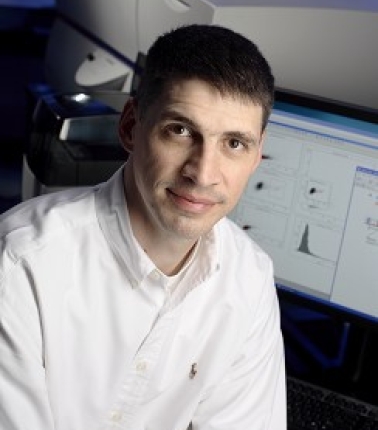
Departmental Affiliations
Contact Info
Research Interests
cytokine, gene regulation, transgenic, polymorphism, SNP, flow cytometry, immunology, immune monitoring, inflammation
Experiences & Accomplishments
Maintenance of a proper balance between inflammatory and anti-inflammatory responses is crucial for effective immunity against infectious pathogens while repressing the development of autoimmunity. The immunoregulatory cytokine IL-10 plays fundamental role in this complex process. Studies document that IL-10 levels are linked with susceptibility to autoimmune and infectious diseases. Those data have been confirmed in IL-10 deficient mice. A key to understanding this delicate balance is by evaluating the molecular and biochemical mechanisms that govern the expression of IL-10. Remarkably, these processes remain poorly understood. Further complicating the issue is the exciting prospect that allelic variants in the genome are likely to regulate disease susceptibility and resistance by influencing the level of expression of a particular gene or gene cluster. The identification of single nucleotide polymorphisms (SNPs) in cytokine/cytokine receptor genes is a common theme in the literature yet only a few of these SNPs have been partially characterized in function. My research is aimed at bridging the gap between genetic polymorphism and biological function. I believe this requires a bilateral approach. Accordingly, my work addresses the basic mechanisms of IL-10 gene expression and the application of these data to allelic variation.
The identification of genetic variants may serve as both markers for disease susceptibility and ultimately as targets for therapeutic intervention. There is however, a bottleneck between genetic haplotypes and the characterization of physiological/immunological mechanisms that mediate complex disease phenotypes. Thus, the broad goals of my research program include: (1) elucidating the molecular mechanisms of cell- and signal-specific IL-10 gene regulation, (2) determine how human cell type-specific human IL-10 regulation impacts disease outcomes, and (3) utilize functional genomics to investigate the translation of genetics and disease association data into a mechanistic and functional immunologic context.
Honors & Awards
2005 & 2006 - Yang Memorial Scholar
Select Publications
Ranatunga, D., Ramakrishnan, A., Wang, F., Brayton, C., Bream, J. H. A Protective Role for Human IL-10-expressing CD4+ T Cells in Ulcerative Colitis. Journal of Immunology, 2012 (In Press).
Dabitao, D., Margolick, J. B., Lopez, J., Bream, J. H. Multiplex measurement of proinflammatory cytokines in human serum: comparison of the Meso Scale Discovery electrochemiluminescence assay and the Cytometric Bead Array*. Journal of Immunological Methods Sep 30;372(1-2):71-7, 2011.
Leng, S.X., Qu, T., Semba, R. D., Li, H., Nilles, T., Yao, X., Yang, X., Manwani, B., Walston, J. D., Ferrucci, L., Fried, L. P., Margolick, J. B., Bream, J. H. Relationship between Cytomegalovirus (CMV) IgG Serology, Detectable CMV DNA in Peripheral Monocytes, and CMV pp65495-503 positive CD8+ T-Cells in Older Adults. Jan 28, 2011 AGE (Epub ahead of print).
Hedrich, C. M., Ramakrishnana, A., Dabitao, D., Wang, F., Ranatunga, D., Bream, J. H. Dynamic DNA methylation patterns across the mouse and human IL10 genes during CD4+ T cell activation: influence of IL-27. Molecular Immunology, Nov-Dec; 48(1-3): 73-81, 2010.
Hedrich, C. M., Bream, J. H. Cell type-specific regulation of IL-10 expression in inflammation and disease. Immunologic Research, Jul;47(1-3): 185-206, 2010.
